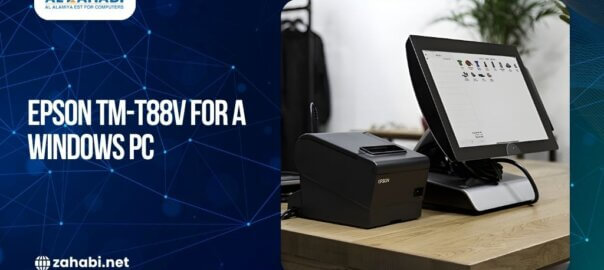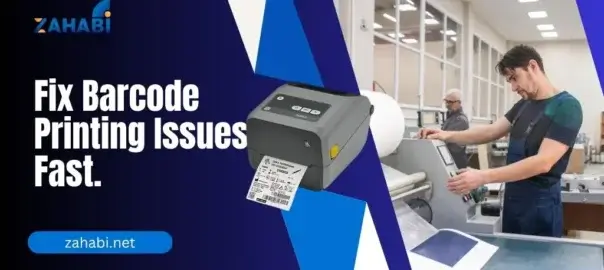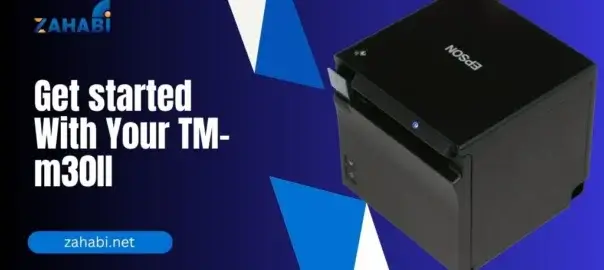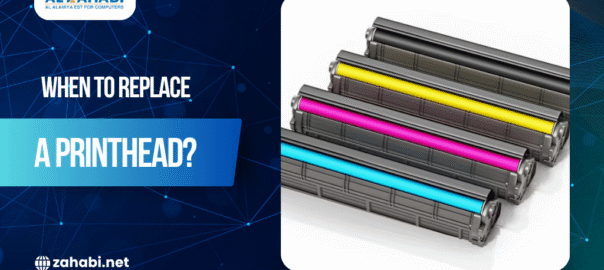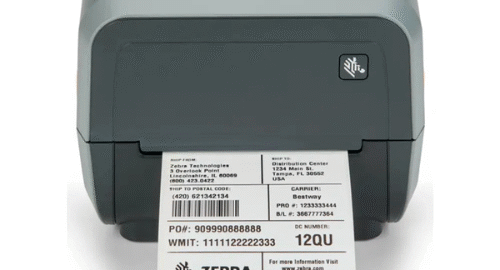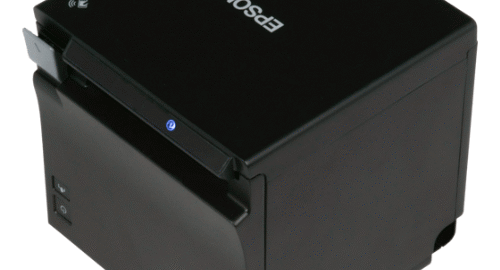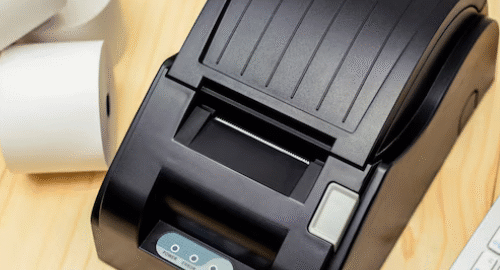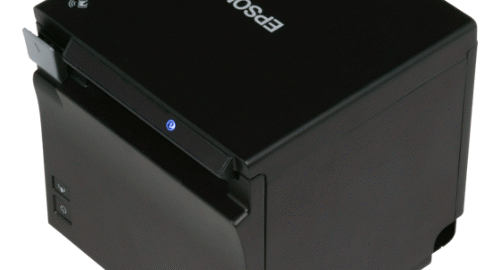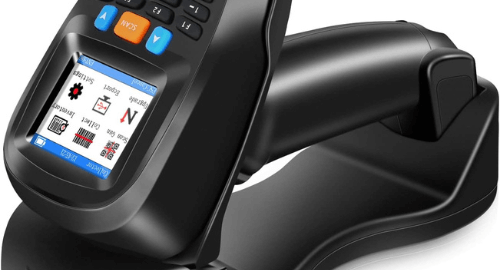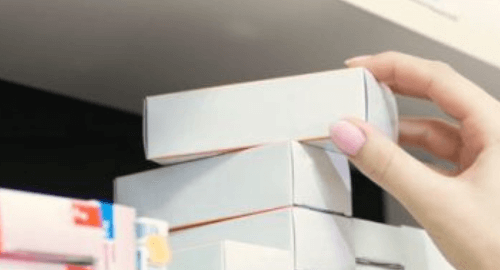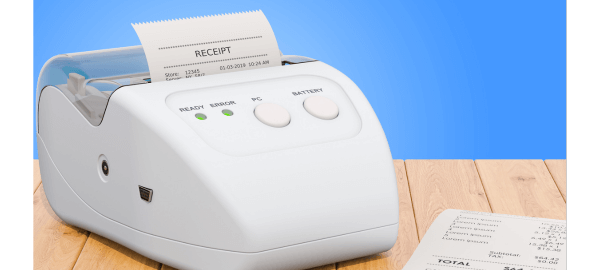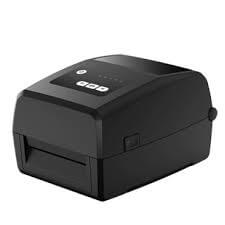
The retail industry utilizes a number of different types of printers needed to operate from dispensing transaction receipts to smooth inventory control to optimized supply chains. From printing barcodes for labeling products to creating and printing a copy of a transaction’s receipt, having the right printer can create an efficient or inefficient retail operation. Understanding the different types of printers and where they best suit any kind of application can help in streamlining workflow at retail stores.
Therefore, in the blog, we’re going to discuss one of the five most used categories in the retailing world: the one for inkjet printers, laser printers, receipt printers, barcode printers, and industrial printers.
Inkjet Printers
There are many types of inkjet printers commercially sold and used in retail settings, among them those with versatility for quality print production. Inkjet Printers Droplets of ink characterize inkjet printers. This means it works perfectly for bright, full-definition image materials.
- Many retailers use inkjet printers for marketing materials, signs, and other promotional posters.
- Used in Retail Setting
Inkjet is frequently used in printing different materials in a retail setting, and these include:
- Product labels
- Promotional flyers
- Shelf talkers
- Labels with rich graphics
The retailers of all these fashion, beauty, and electronic markets use such inkjet models as their choice as the richness in the graphic details require high-quality images.
However, the cost incurred during working is more as the ink cartridges get used up very frequently, therefore these are less suitable for high volume printed purposes.
Laser Printers
Laser printers are also extensively utilized in retail due to the speed and efficiency with which they work. These work on the principle of sending a laser beam onto paper to transfer the toner, thereby creating crisp and clean text and images. They can be called ideal for producing volumes of work quickly. Hence, laser printers are particularly best suited for back-office work.
Some applications of a laser printer in retail are as follows:
- Printing invoices
- Employee records
- Store reports
- Point-of-sale (POS) documents
Laser printers are cheaper in the cost per page and produce more pages per month compared to inkjet. They find a better space in business that demands very high volumes of printing without compromising the print quality.
Though laser printers are generally not used for very graphics- or label-based product labels, receipt documents, and other paper, their emphasis is on text content.
Receipt Printers
A receipt printer is an essential device in any retail environment, mainly found at counters where cash transactions occur. Such receipt printers work specifically to print transactional receipts, meaning they can do it fast and fast, just like your point-of-sale system.
There are two major types of receipt printers that can easily be seen in retail businesses:
- Thermal Receipt Printers:
These use heat to print words onto thermal paper and are especially fast and silent, making them widely used by retailers for receipt printing. They use no ink or toner so their replacement cost is not charged during operation process.
- Impact Receipt Printers:
Older styles of printers using ink ribbons and impacts to literally ‘smash’ the words into the paper. Relatively more robust and more commonly used in situations where a receipt has to be printed on multi-part forms, or conditions where thermal paper might not work as well – say, extreme heat or sunlight.
Receipt printers are an absolute necessity for grocery stores, restaurants, and retail stores where fast and reliable recording of transactions is a must.
Barcode Printers
Barcode printers play a vital role in the retail shop, not only for the proper inventory control but also in labeling products or their retail prices. Barcode printers are used to print labels containing bars that can be read by a barcode reader for the proper operation of the store.
Barcode printers fall into the following two types:
- Direct Thermal Printers: These have heat-sensitive paper, with no need for ink. They are very cheap options, where one can print label prescriptions in small numbers and for a short period of time, but they peel with time.
- Thermal Transfer Printers: These use a ribbon to transfer the ink on to a label. The result is stronger and more durable prints. The thermal transfer printer is good for printing quality barcodes that must have strength against direct sunlight, moisture, or chemicals.
Barcode Printers apply mainly on retail at:
- Pricing labels
- Shelf tags
- Inventory labels
- Shipping labels
Barcode Printers drive accurate product tracking, inventory control, and pricing.
Industrial Printers
Industrial printers are designed for massive prints and high volumes. Most of these are applied in a warehouse or distribution center environment. These are built to have long prints, making the reliability and endurance with demanding retail environments.
In retail, industrial printers are applied upon:
- High volume label prints
- Warehouse labeling and tagging
- High volume production of bulk barcode labels
- Shipping and logistics labels
Hundreds and thousands of labels or documents can be printed daily by industrial printers. These are very important for big stores or warehouses who handle so much stock in a day.
The print speed and performance of these machines are always top-notch, with almost nil downtime, ensuring that the operation goes on without a hitch in an efficiency-driven environment.
Conclusion
From inkjet printers high-quality marketing materials to receipt printers for quick and reliable transactions, each one of the types of printers had its place in the retail operations. Laser printers are great for efficiency for text-based printouts; otherwise, without barcode printers, it is very difficult to have a proper labeling of all products or even correct management of the inventory. Finally, industrial printers go on to help with the large volumes of printing conducted in warehouses and distribution facilities.
The right printer would be a good investment to enhance efficiency in operations and gain customer satisfaction from the retailers in the cities of Mumbai. Whether it is colorful labels for products, faster processing of transactions, or inventory management, it would be useful to achieve success with the right printer.

